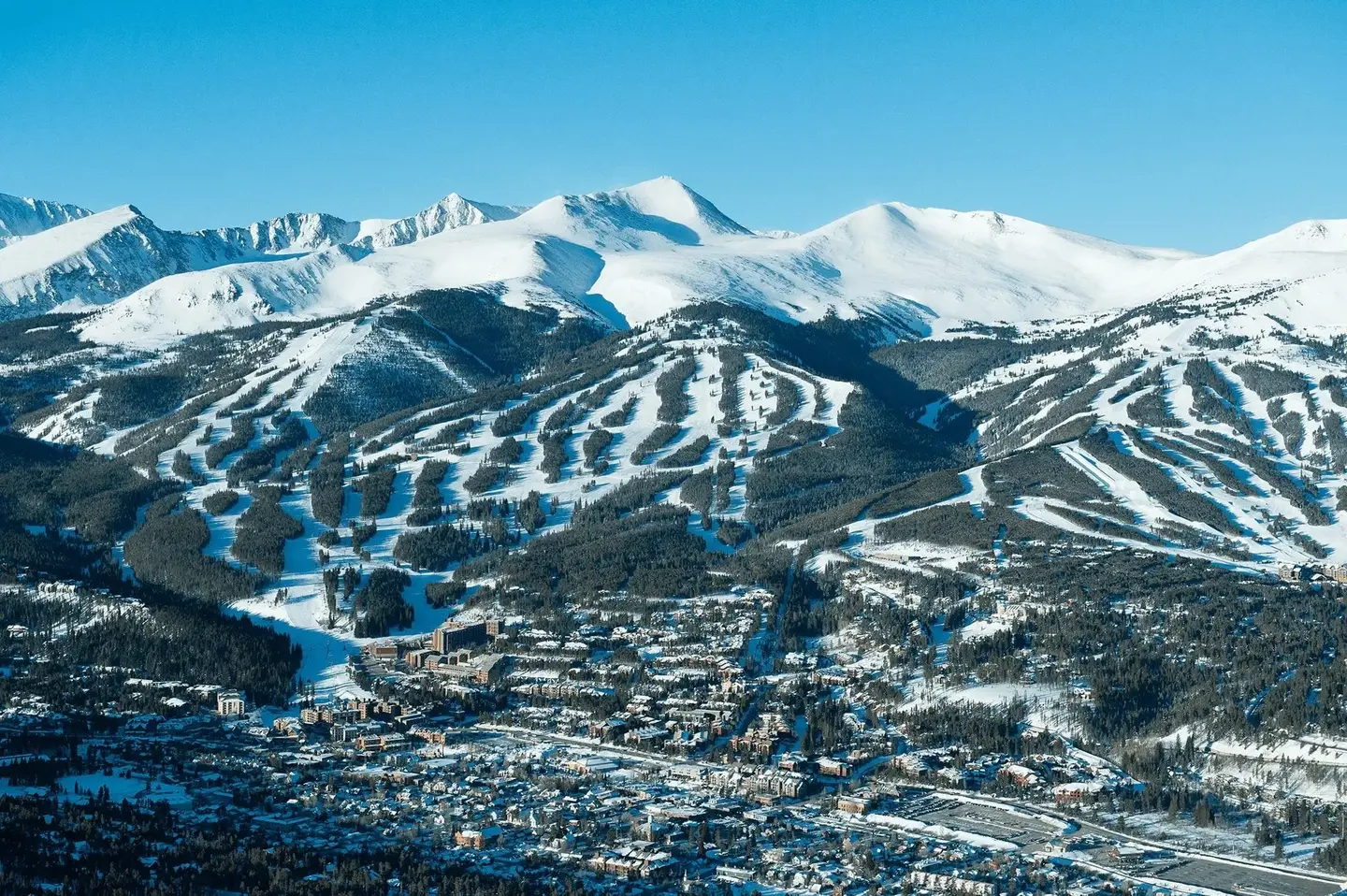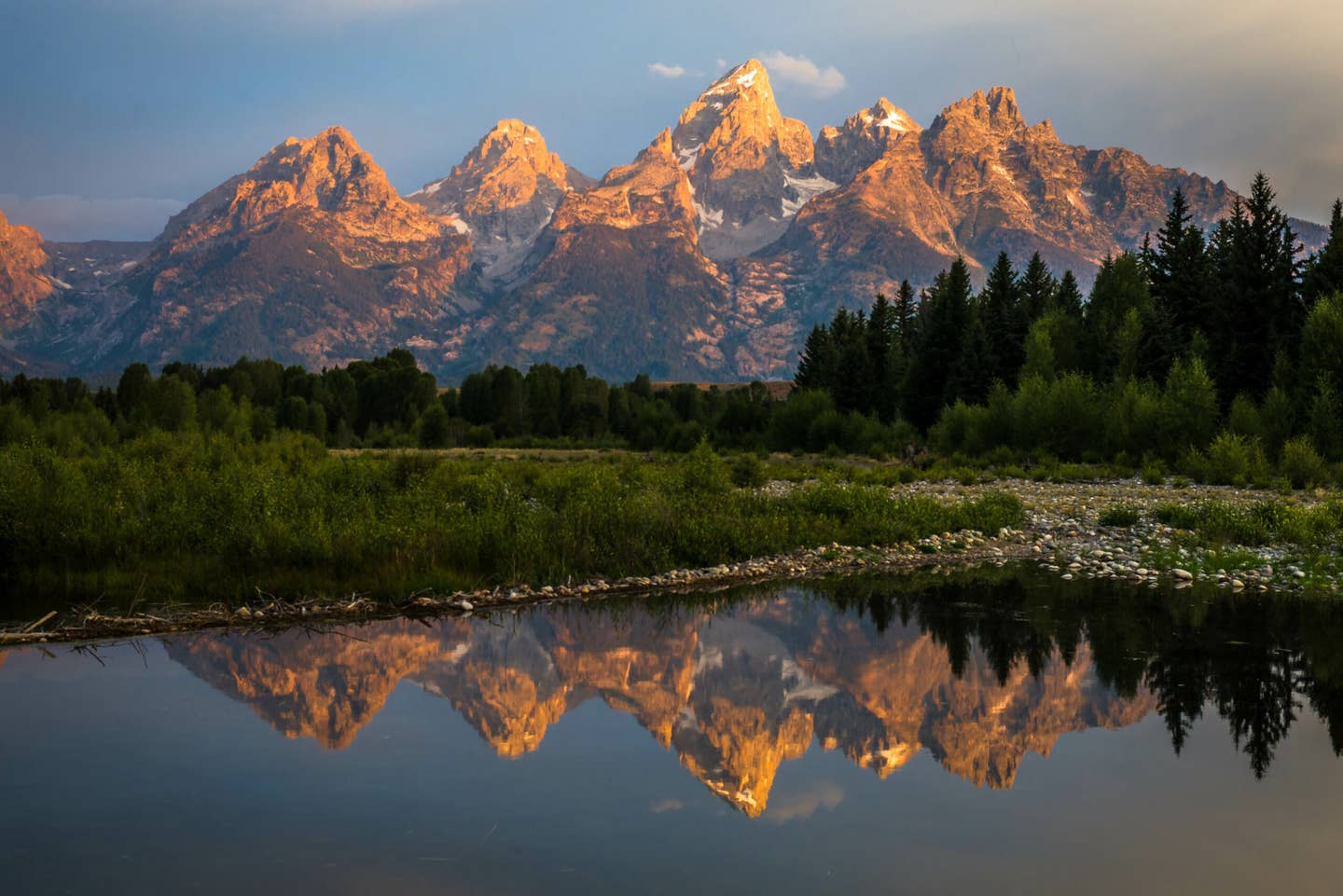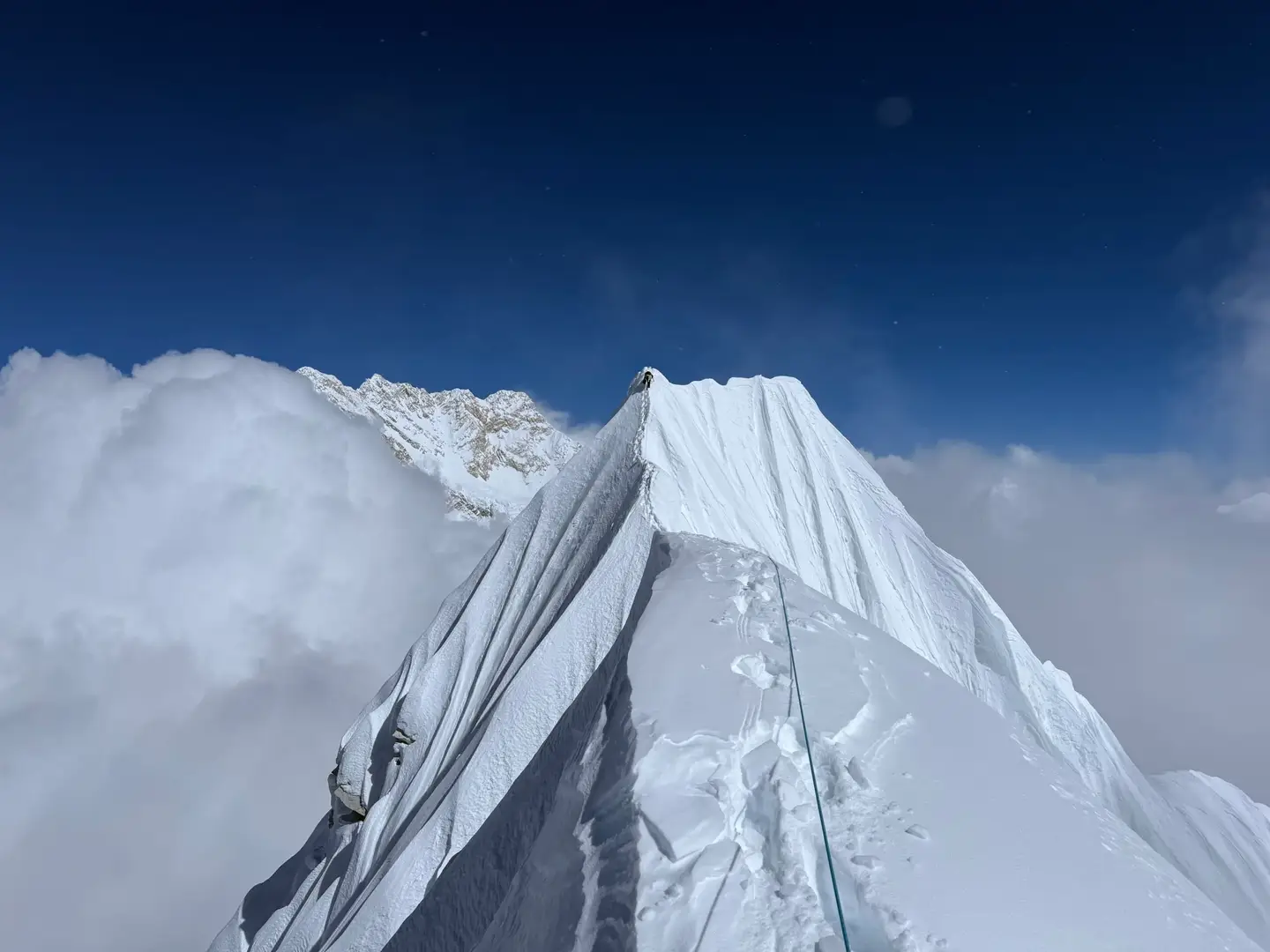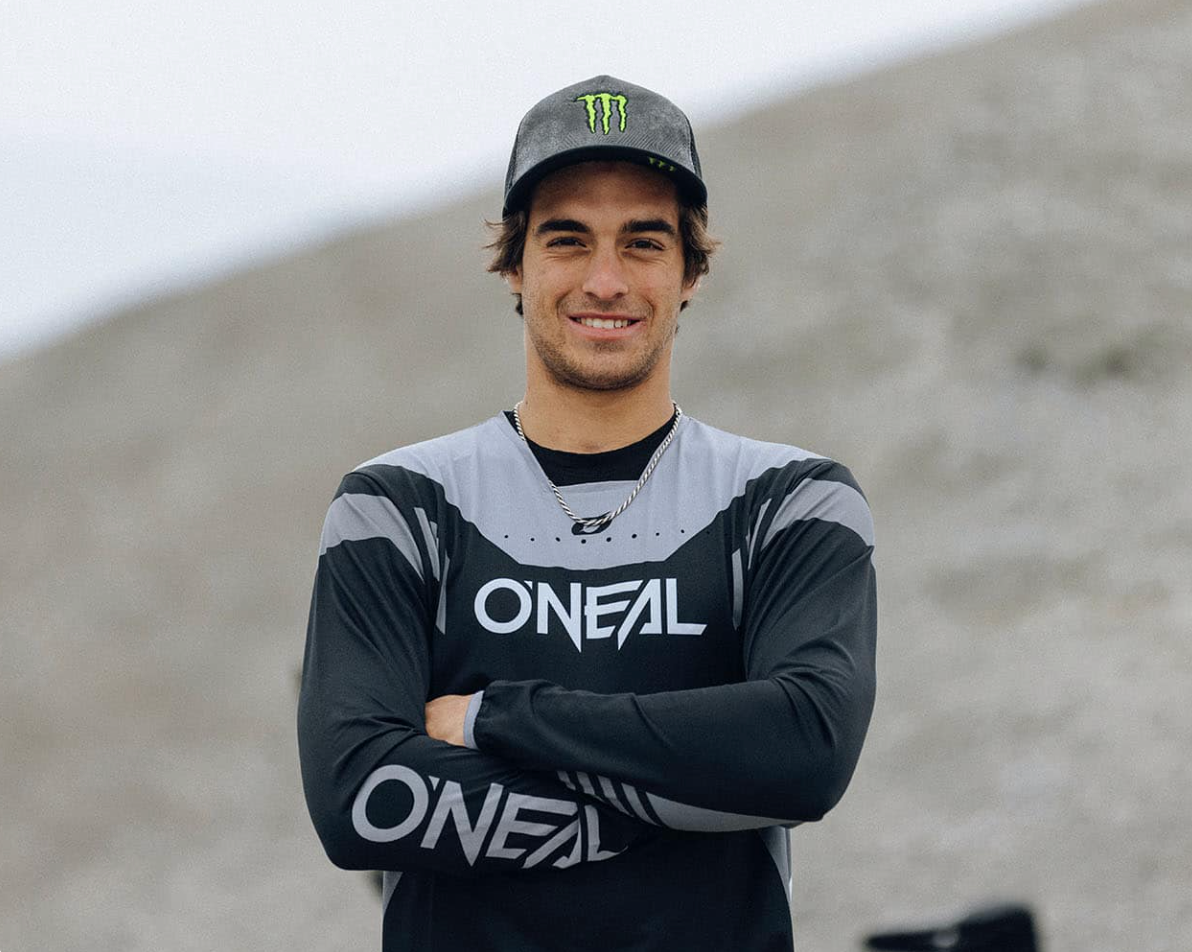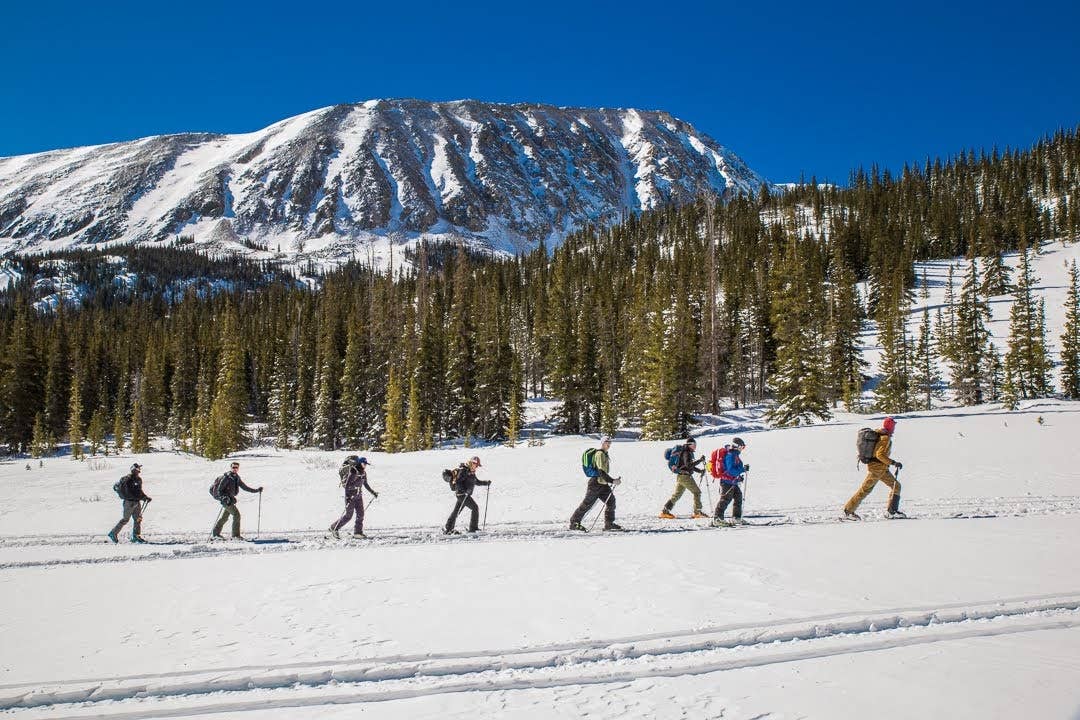

Human Powered: Creating an Uphill-Only Resort
Popular Stories
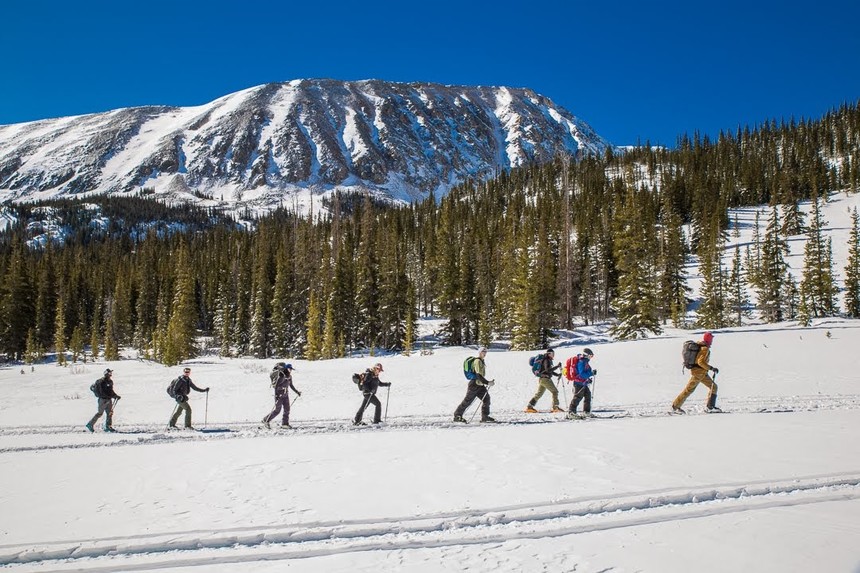 Guests touring Mosquito Pass, CO during Bluebird Backcountry's second weekend of testing. Doug McLennan photo.
Guests touring Mosquito Pass, CO during Bluebird Backcountry's second weekend of testing. Doug McLennan photo.
Backcountry skiing and snowboarding are steadily growing in popularity, and for good reason. Untracked powder, beautiful scenery, serene isolation, and rewarding exercise combine to create a unique experience which leaves just about everybody who gets a taste hungering for more.
The barriers to entering the world of backcountry skiing, however, are higher than almost any other sport. Rigorous education, expensive gear, and the need for in-field training stand between interested novices and the special experiences afforded by the backcountry. Unless one has time and money to spare—not to mention a mentor or two—safe and enjoyable trips into uncontrolled zones aren’t a realistic possibility.
Enter Erik Lambert and Jeff Woodward, two longtime ski-touring enthusiasts with a vision for a “backcountry ski area.” They imagine giving more people a taste of the backcountry experience in the controlled setting of a resort. They say that there is a need and a demand for middle-ground between the increasingly industrialized and commercialized world of North American ski resorts and untamed out-of-bounds areas. “Picture an avalanche-controlled and patrolled ski area without lifts, but with amenities like lodges with food service, rentals, and guides,” Lambert said. Such a place could bridge the gap between safe but crowded resorts and consequential backcountry zones.
For Woodward, the inspiration came after he took his brother on his first backcountry tour. “He had the time of his life,” said Woodward. “He wanted to know what it would take to become proficient enough to lead his own trips into the backcountry, and I had to tell him that it wouldn’t be easy.” For Woodward, this was an on-the-nose example of what he sees as a problem for backcountry skiing: nigh-insurmountable barriers to entry. And for him, this was a problem worth solving. After some thought, he called up his longtime friend Erik, who consults for the ski industry, and they started bouncing some ideas back and forth.
Lambert immediately saw the potential. He had himself thought about the opportunities to develop North American backcountry culture and fill gaps in the existing backcountry education model. “Our idea was, and is, to create a zone where novices can get training and experience in a safe and welcoming environment,” said Lambert. But their vision is not just a beacon training park writ large. Given the quantity of high and extreme avalanche danger days in a place like Colorado, they envision a backcountry-esque area that might serve expert skiers, too.
Thus was born the idea for a new take on the ski area, dubbed Bluebird Backcountry by the duo. “Instead of a binary choice between resorts and backcountry, we want to offer an experience which we’re calling ‘Backcountry Lite,’” said Lambert. “It’s not just about offering a middle-ground. It’s about connecting two very different sides of North American ski culture—creating a place where first-time tourers can hike and ski with veterans in a low-pressure and community-based environment.” Their idea incorporates aspects of ski areas like Colorado’s Silverton, RASTA and Granite Backcountry Alliance in the Northeast, and Hankin-Evelyn in British Columbia, but is far from a copy of any existing model.
Sign Up for the TGR Gravity Check Newsletter Now
Woodward and Lambert tested the proverbial waters of the ski community to see if anyone would actually be interested in a “Backcountry Lite” experience. In February 2018, they set up a website, the centerpiece of which was a survey intended to gauge interest and economic viability. The results were mission-affirming: “Over 90% of those who took the survey were interested in our vision,” said Woodward. “That was a huge indicator that we had tapped into an idea with real potential.”
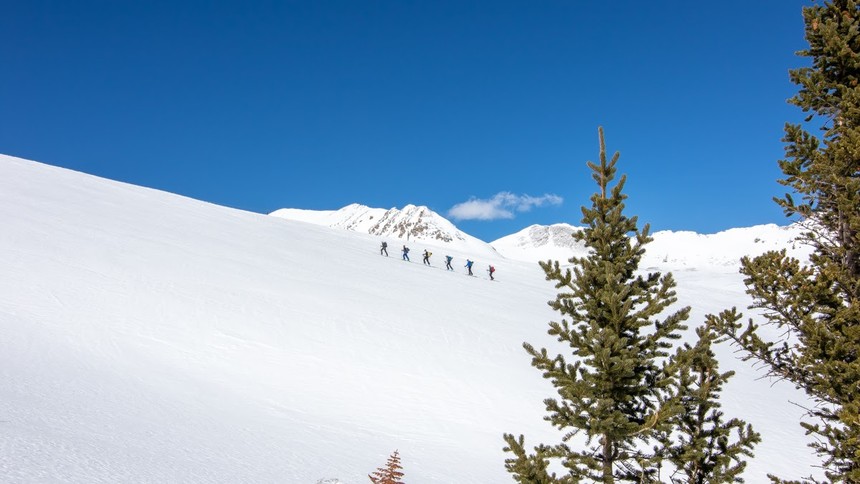 A perfect bluebird day to test out Bluebird Backcountry. Scott Cody photo.
A perfect bluebird day to test out Bluebird Backcountry. Scott Cody photo.
From there, the duo, moonlighting along with 20 hardworking and inspired volunteers, set about arranging pilot programs to see exactly how well their scheme would translate into reality. Their first test took place this March at Mosquito Pass, Colorado. One hundred guests were split into groups of similar backcountry ability and experience and guided around the area. “The intention was to offer a fun and educational experience while providing us an opportunity to learn about what guests want and need from the kind of ski area we are imagining,” explained Lambert. The prototype was a success, with lots of exhausted but satisfied guests and plenty of valuable information gathered.
The project’s second pilot is taking place this weekend, April 27–28th, 2019, at Winter Park in Colorado. Bluebird is offering the opportunity to explore 200 acres of the resort which are normally closed at this time of year, with all of the standard amenities—including rentals, lessons, and ski patrol... but no chairlifts, of course. As of press time, spots are still open for the Winter Park pilot (you can take Bluebird’s survey and find tickets here).
While their first test was successful, finding a permanent home for Bluebird Backcountry is an uphill battle. “The biggest challenge has been finding land,” said Woodward. “An area with the perfect combination of terrain, snow quality, and accessibility is tough to find.” However, Erik and Jeff are hoping to get the project off the ground as soon as possible and transform their vision into reality. “Everything has been going well, thanks in large part to our incredible team of volunteers,” said Lambert, “but there are still a number of things we’ll need to figure out before we can offer the experience that we are envisioning.”
